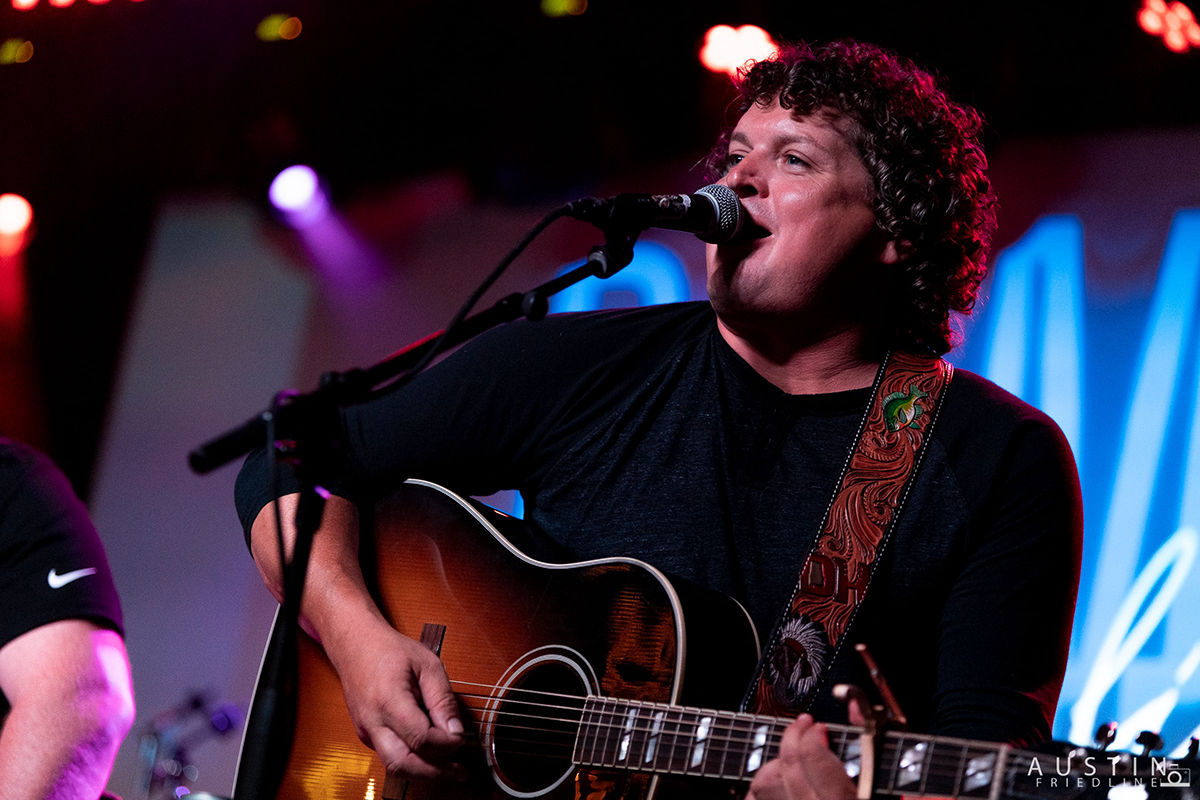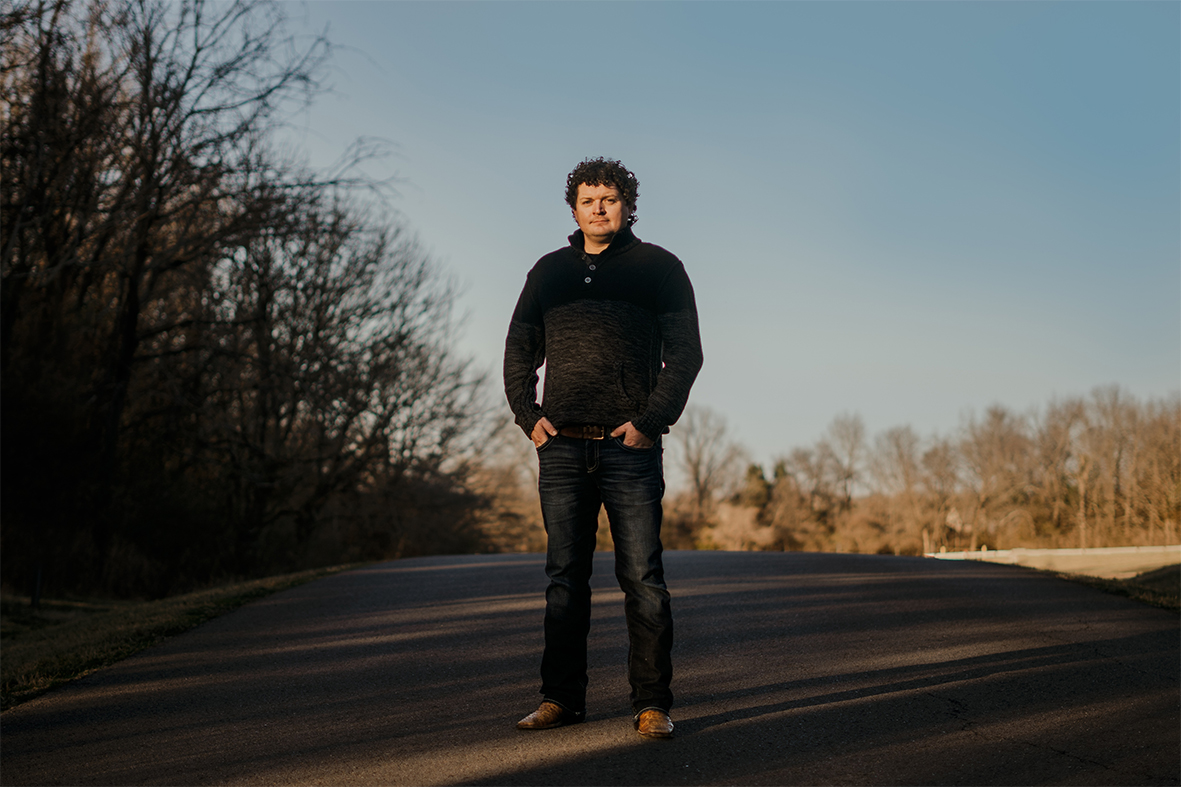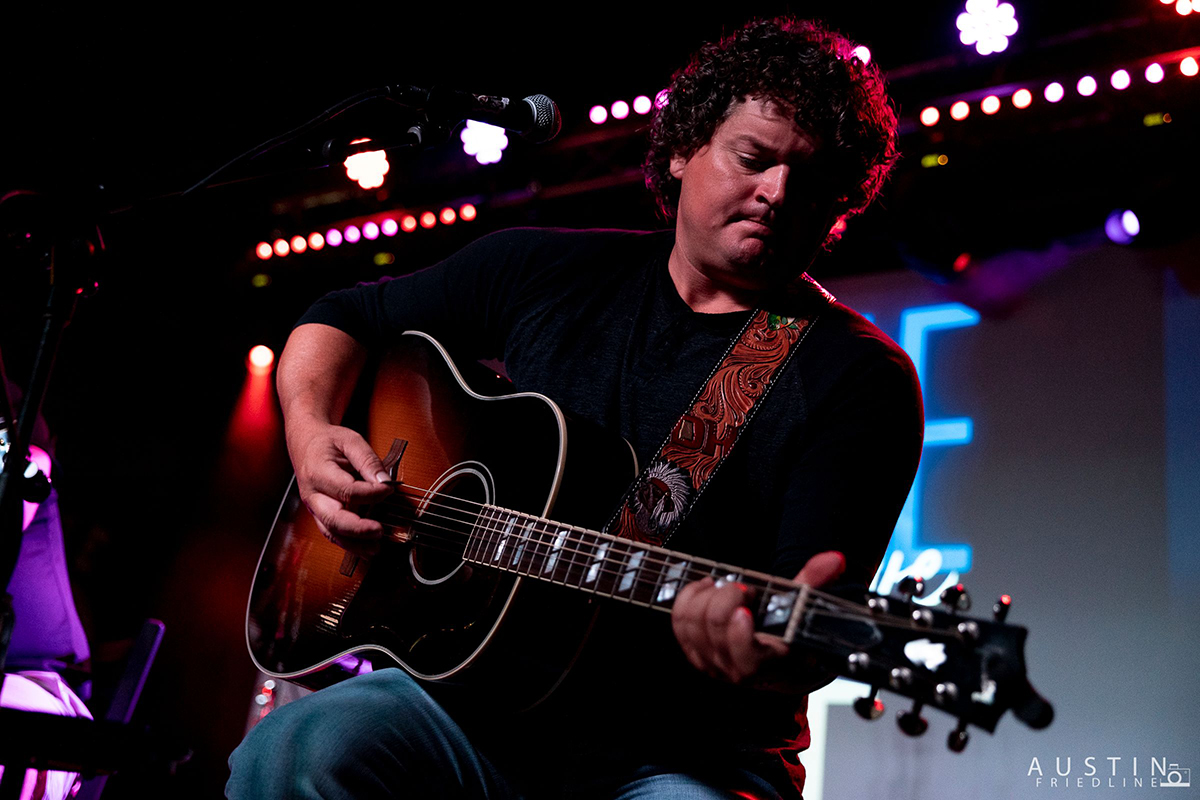A rising country star remembers his “farmer’s boy” roots.
By Caroline Rice

Dustin Herring ’08 grew up on a 400-acre farm in Hartford, Ala., and spent his childhood toiling on its land and placing his identity between the rows of corn and cotton “where the kudzu grows.” The farm was all that he knew, and all that he ever wanted to know, until he learned his first three chords on the guitar. He spent nearly a decade with his heart in two places—with his farm and with his music.
It wasn’t until the decision was made for him that he began to single-mindedly chase his dream of country music stardom.
“My little town ain’t much to see / nobody misses it except for me / word spreads fast / time moves slow / where the kudzu grows”
The pond on the family’s land was the fishing hole of the 2,500-person town, and the barn behind it was where Geneva County High students built bonfires under the star-studded sky. When Herring was old enough for his parents to leave him home alone, he hurried to the shore of the creek to fish with his simple Zebco 33 pole, a gift from his grandfather ‘daddy-boy,’ without interruption. When his family purchased a jonboat, he learned the creek like the back of his hand, caught bigger fish and shot more ducks, deer and doves with his precious Remington model 870. The farm was everything to Herring—his playground, his profession and his place.
And when he traveled 140 miles north to Auburn for an agriculture degree, he intended to move back to Hartford after four short years. Taking his dusty square-toed work boots with him, Herring found comfort in The Old Rotation’s cotton fields and in the cow pastures behind campus. Then he learned that one of his new friends played the guitar, and as he heard him strumming, the sound of his strings stopped Herring’s boots in his tracks. He had never been taught how to play, but always had the desire to learn.
“I never knew where to start with learning guitar, so I asked him to show me, and he taught me three simple chords: G, C and D,” Herring said. “People always say all you need is three chords and the truth, and that’s what I started with.”
“People always say that all you need is three chords and the truth, and that’s what I started with.”
Every afternoon after agriculture class, Herring went back home to play his beginner’s guitar. He Googled chords to the songs that he wanted to learn, and his aching fingertips couldn’t stop him from practicing into the night.
“During that first year, I would get through class and work [just] to sit at my desk and practice guitar,” Herring said. “Once I got a taste of it, I loved it.”
His first performance was at an open mic night at Strutting Duck bar off of Wire Road, a bar that attracted touring musicians and country students alike. The yellow lights and smell of alcohol contrasted with his only prior experience singing to an audience: the Hartford Baptist Church youth choir on Sunday mornings.
Herring earned a graduate degree from Auburn in plant pathology in 2011, and received a job offer immediately after graduating. He had prepared for an agriculture job, but the profession of agriculture safety wasn’t as satisfying as it should have been. His heart was in the music, but his head was in the farm.
“Sometimes I wonder how it used to be / Should I stay or go, what’s best for me? / They say there’s a world out there that you will never know / But if you leave town you will never come home”
“My reason for going to college was to learn the agricultural business side of farming, and then to return back to Hartford to practice it,” Herring said.
But he couldn’t make up his mind. He began asking the Lord for a sign to stay on the farm or to chase the music.
Herring packed up his guitar and headed to the Mississippi Delta for his job as an agricultural analyst to gain the experience he needed before returning to Hartford. Leaving behind distractions in Alabama, he didn’t have much to do besides work in the fields during the day and write songs in the evenings.
“I didn’t know anyone in the whole state of the home of the blues, so I poured myself into my songwriting.”

In 2012, while he worked the farm in Mississippi, Herring blindly entered the Texaco Country Showdown songwriting competition in Nashville. Nearly forgetting about the competition, Herring came in from work weeks later to see a voicemail from a Nashville phone number. Assuming they had the wrong number, he pressed play and expected to put the phone right back down. But they had the right number—Herring whad won the competition, and was asked to come to Nashville to meet with publishers and hit writers from “Music Row.”
For the first time, Herring visited Nashville for his music.
“You mean to tell me that you don’t live in Nashville, you don’t co-write with anyone, and you don’t have a publisher, but you won the songwriting competition?” a publisher asked.
“Yeah, pretty much,” Herring said.
“Well, you must have something going for you,” they replied.
Herring left Nashville more confused than ever. Was he really supposed to give up his roots to focus on his music career? But when his family sold the farm in Hartford, the Lord’s answer was clear. The sting of a lost identity hurt, but he saw what was left in front of him—the freedom to become a professional musician, without the guilt of choosing to leave his acreage.
That was the clarity that Herring needed—he was ready to take a leap of faith and move to Nashville. A country singer is what he would become.
Herring stood in the streets of the Music City with his guitar on his back and his old square-toed boots on his feet, overwhelmed by the city traffic and the lack of agriculture. He drove to the farm that he would be managing—a property that country stars Alan Jackson and Kenny Chesney once owned. Herring spent his evenings performing his first shows in Nashville, wearing brand new square-toed ostrich skin boots that a friend gave him.

In Nashville, Herring picked up the tempo with bigger shows and more song releases. He booked enough performances to be on tour for all of 2020, and he felt like a rising country star.
But that was before COVID-19 shut down his plans of living on the road.
He watched the Music City’s bright lights dim as the rush of artists fled the city. Realizing that he couldn’t ride out the pandemic in his small apartment, Herring knew he needed to return to his family and the open outdoors in Hartford. As he sat with his 83-year-old grandfather for the first time in months, he remembered what he was missing.
“I realized how much I missed home, and genuine friends, and genuine relationships—I neglected that for some time,” Herring said.
The clocks ticked slower during the summer of the pandemic, and Herring had more time to pour into his songwriting. The creek that he used to run to and the farm he called home reappeared in his lyrics again.
“It’s easy to write country songs when you’re being honest about them and when you grew up in them,” Herring said. “It just pours out.”
Nashville came back to life as the pandemic subsided, and Herring left to return to his apartment in the city. But he still sings of kudzu.
“Friends are treated like family / The roads are dirty rough as can be / You’re always welcome, the store’s never closed / Where the kudzu grows”
The Life of George McMillan ’66
From student government president to lieutenant governor and music festival empresario, George McMillan’s life of public service had an outsized impact on the state of Alabama.
An Eye for Action
From the mound to the mountain, Blake Gordon ’03 has captured life on the edge.
Charting Her Course
From Auburn’s campus to the world’s most advanced warships, Emily Curran ’10 has never forgotten where she found her footing.
The Life of George McMillan ’66
From student government president to lieutenant governor and music festival empresario, George McMillan’s life of public service had an outsized impact on the state of Alabama.
An Eye for Action
From the mound to the mountain, Blake Gordon ’03 has captured life on the edge.
Charting Her Course
From Auburn’s campus to the world’s most advanced warships, Emily Curran ’10 has never forgotten where she found her footing.


